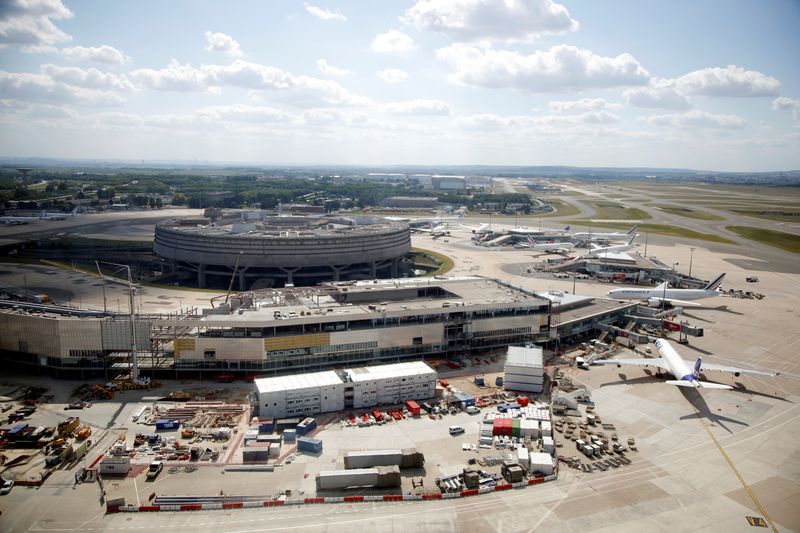By Pratima Desai
LONDON (Reuters) - Cobalt prices are at 10-month lows due to sagging demand from the electric vehicle and aerospace sectors amid the COVID-19 pandemic and look likely to slide further as airlines defer maintenance.
Airlines such as Australia's Qantas (AX:QAN), Qatar Airways and Singapore Airlines (OTC:SINGY) are looking to defer plane deliveries from Airbus (PA:AIR) and Boeing (N:BA) and this means postponed demand for cobalt and nickel alloys used in jet turbine blades.
Graphic: Cobalt demand from aerospace, https://fingfx.thomsonreuters.com/gfx/ce/nmopajjjrva/Aerospace%20cobalt%20demand.PNG
But this is only part of the story.
"The harsh high temperature and pressure environments of the jet engine necessitates regular replacement of turbine blades," said CRU analyst George Heppel. "But planes are grounded, turbine blades aren't being used and don't need replacing."
Heppel expects cobalt demand for aerospace rotating parts to total 4,442 tonnes this year, a drop of 18% from 2019 and the lowest since 2011. Overall, he forecasts a 6,300 tonne surplus this year and global consumption at 131,800 tonnes.
Graphic: Cobalt market balance, https://fingfx.thomsonreuters.com/gfx/ce/gjnpwwwwqpw/Cobalt%20market%20balance.PNG
Prices of cobalt metal, at around $30,000 a tonne, are down more than 15% since early February and are the lowest since last August. As surpluses become more visible lower levels are expected.
Graphic: Cobalt prices, https://fingfx.thomsonreuters.com/gfx/ce/azgvorrkwpd/Cobalt%20prices.PNG
Roskill analyst Ying Lu said recent price convergence between higher grade cobalt metal used for alloys and standard grade was a signal of weak demand from the aerospace sector. She expects a relatively balanced market this year compared with a 10,000 tonne surplus last year.
"The pandemic has affected demand and supply. Cobalt mined from (Democratic Republic of) Congo is typically exported for refining through Durban in South Africa, where there was lockdown (to halt the spread of the new coronavirus), which created logistical disruptions."
Cobalt from the DRC comes in the form of hydroxide, which is turned into chemicals for the lithium-ion batteries used to power electric vehicles. Much of it goes to China, which dominates the supply chain for electric vehicle batteries.
Falling sales of electric vehicles in China, including by Tesla (O:TSLA) and BYD (SZ:002594) (HK:1211) earlier this year and in the second half of last year, have also weakened cobalt consumption.

However, demand from the electric vehicle sector, which represents 20% of global demand, is expected to recover at a faster pace than from aerospace due to government incentives to promote clean air initiatives.
